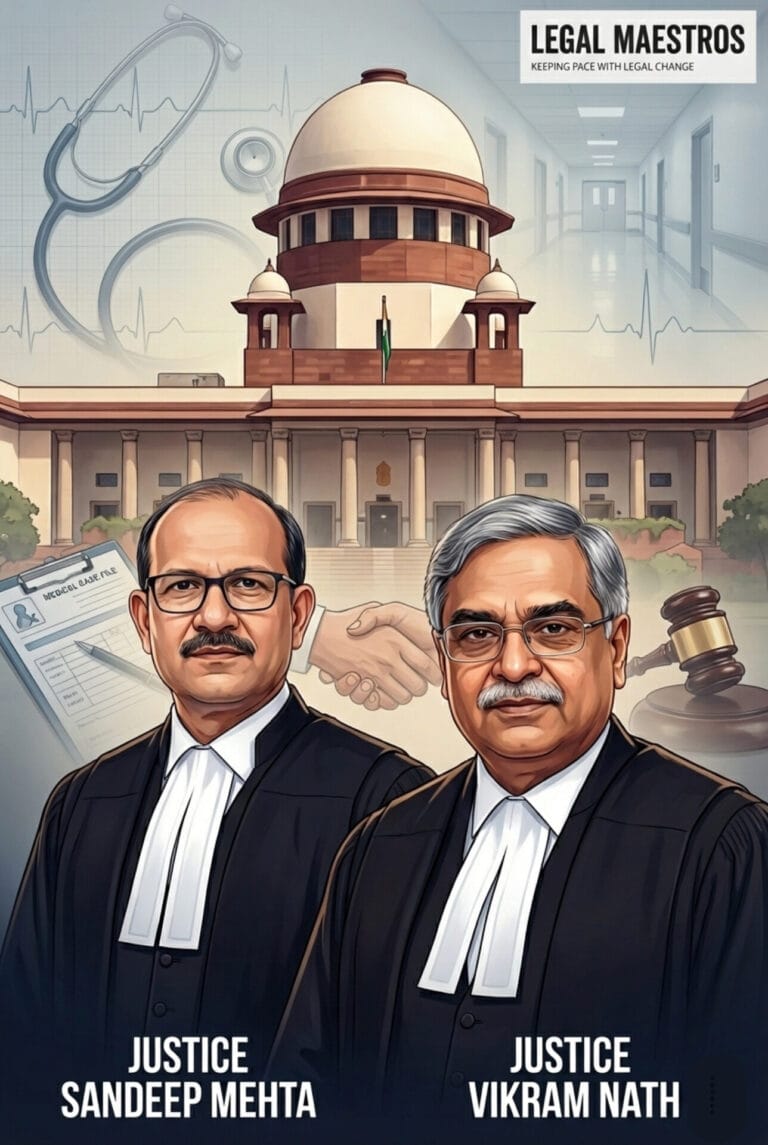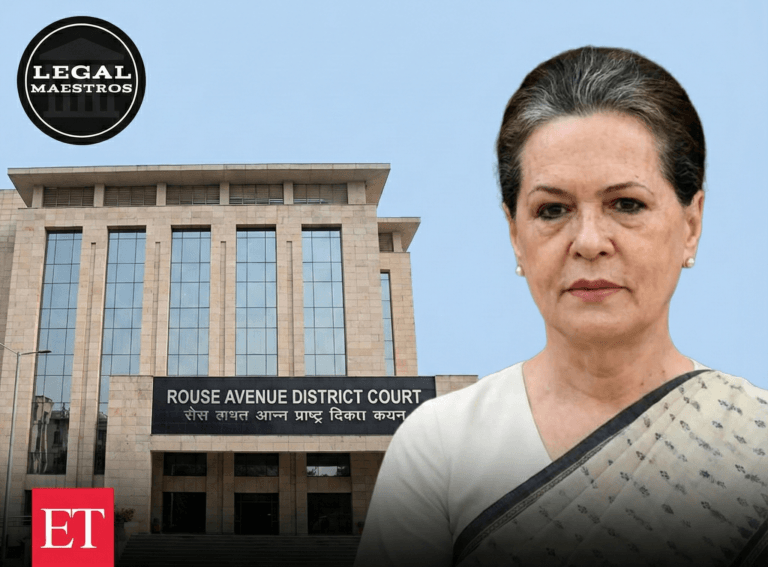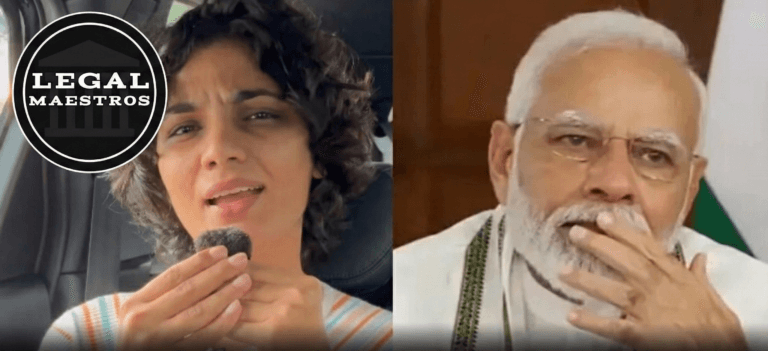
The Overseas Citizenship of India status of Professor Nitasha Kaul was revoked pursuant to an order that was issued by the Ministry of Home Affairs of India in the month of May 2025. Kaul is an experienced political scientist who teaches at a prestigious university in the United Kingdom.
He specializes in topics pertaining to democracy, human rights, and minority groups, particularly those that are relevant to Kashmir. issues about dissent and free expression are developing, particularly when they are voiced by members of the Indian diaspora, and her loss of OCI rights occurs at a time when these issues are escalating.
In order to gain a better understanding of this case, it is necessary to examine the rules governing citizenship in India, the OCI system, and the legal mechanisms that enable the state to revoke such privileges.
For any queries or to publish an article or post or advertisement on our platform, do call at +91 6377460764 or email us at contact@legalmaestros.com.
For More Updates & Regular Notes Join Our Whats App Group (https://chat.whatsapp.com/DkucckgAEJbCtXwXr2yIt0) and Telegram Group ( https://t.me/legalmaestroeducators )
OCI and the Citizenship Act: Some Background Information
Overseas Citizenship of India is not the same as full citizenship; rather, it is a form of perpetual residency that allows for visa-free travel, ownership of property, and investment in businesses within India.
Originally enacted by the Citizenship (Amendment) Act of 2003 and further developed via subsequent modifications, the OCI status recognizes the connections that the Indian people around the world has to their homeland. However, contrary to its name, it does not confer any voting rights or access to public office.
Both the eligibility requirements and the conditions that must be met in order to have one’s OCI status revoked are outlined in the Citizenship Act with its rules. Among these, the most important is the authority that the government possesses to revoke OCI registration if it is deemed “necessary” in the purpose of maintaining national security, public policy, or state sovereignty.
The Scholarly Contributions and Opinions of Professor Nitasha Kaul
Kaul, who was born into a Kashmiri Pandit family, attended educational institutions of higher learning in India before relocating to the United Kingdom to seek further education. In the areas of democracy, conflict, and identity politics, she has written books and articles that have been published.
In foreign lectures and committee hearings, she has brought attention to human rights concerns in Jammu and Kashmir, criticized policy changes such as the revocation of a special autonomous status, and explored the rights of minority groups within the context of India’s political system. The foundation of her academic reputation is built on extensive fieldwork and forthright analysis, both of which have, on occasion, called into question official narratives.
OCI Revocation Caused by Events That Led to It
When Kaul attempted to attend a seminar in Bengaluru in the beginning of 2024, she was denied admission. This was the beginning of her problems with the Indian authorities. Officials stated concerns about her safety, and she was returned to her home country within a few hours of landing.
Unfazed, she continued her academic pursuits in other countries, including testifying in front of legislative bodies from other countries about the state of human rights in Kashmir. On May 18, 2025, she made a public announcement on a government order that informed her that her out-of-country status had been terminated.
In the letter, she was accused of participating in “anti-India activities” that shown “malice” and “disregard for facts or history.” Her public words and publications were framed as being detrimental to India’s sovereignty.
OCI Cancellation Provisions that Are Legally Required
Because of the Citizenship Act and the laws governing the OCI, the central government has the authority to revoke an OCI registration for a number of different reasons. Former Pakistani or Bangladeshi citizenship, fraud or the suppression of material information during the application process, violation of any Indian law, or participation in activities that are judged to be harmful to India’s sovereignty and security are some of the reasons why a person may lose their citizenship.
The government has the authority to make the judgment, and there are few possibilities for appealing the decision. By filing writ petitions in high courts, affected individuals have the ability to seek justice by alleging that they have been violated of fundamental rights or that there have been procedural lapses. In matters pertaining to national security, however, the courts frequently defer to the assessments made by the executive branch.
Various Allegations and Reasons Presented by the Government
In the annulment ruling, many instances of Kaul’s public criticism of India were mentioned as contributing factors. They were referred to as “inimical writings and speeches” since they targeted India’s institutions. Her talks at international academic forums, social media posts, and involvement in hearings before foreign legislative bodies were all considered to be examples of these words.
An emphasis was placed in the order that these actions were part of a pattern that was intended to undermine India’s image in other countries. Her academic critique was portrayed as attacks driven by politics rather than as intellectual debate, which was the intended effect. By referring to her work as “anti-India,” the government communicated that it had a poor tolerance for voices from other countries that call into question its policies.
Professor Kaul’s Reaction and Legal Challenge to Their Position
When asked about the revocation, Kaul responded by describing it as an act of “transnational repression” and “vindictive cruelty.” As far as she was concerned, her work was not motivated by malice but rather by intellectual rigor and concern for human rights. It was declared by Kaul that she intends to appeal the ruling in the high court, noting that the government did not present any particular reasons or evidence to support the annulment of the order.
It is anticipated that her legal team will oppose both the substance and the procedure of the order, bringing attention to the fact that no OCI holder was provided with a reasonable opportunity to respond and contest the judgment. The willingness of the judiciary to investigate executive actions that have an impact on nationals living abroad will be put to the test by this case.
Implications at a More General Level for Academic Freedom
The situation involving Kaul raises questions about the amount of room that exists within the international academic community for critical scholarship on India. The withdrawal of residency privileges on the grounds of criticism may discourage other scholars from engaging with controversial themes, despite the fact that sovereign states have the right to protect national interests.
It is possible that the chilling effect will extend to journalism, human rights advocates, and voices from the diaspora, so reducing the variety of opinions that are expressed in public discourse. It is a delicate balance to maintain both the protection of sovereignty and the preservation of open academic inquiry, and this occurrence has brought that tension into stark perspective.
The Numerous Complicated Matters Concerning Anti-India Allegations
In the process of labeling scholarly criticism as “anti-India activity,” the distinction between genuine dissent and destructive propaganda is muddled. Scholars like as Kaul suggest that robust debate, even if it causes officials to feel uncomfortable, is a factor that contributes to the resilience of democratic institutions.
It is a threat to plurality, according to those who are opposed to the action taken by the administration, to confuse criticism with betrayal. However, there are many who advocate for the revocation who maintain that abroad people are entitled to unique rights and that they should not be abused in order to promote narratives that undermine the cohesiveness of the nation. The discussion sheds light on more fundamental concerns regarding identity and belonging, as well as the part that diaspora populations play in casting India’s image in other countries.
A lesser-known aspect of India’s Citizenship Act and its preventive powers has been brought to light as a result of the termination of Professor Nitasha Kaul’s OCI status. Questions pertaining to executive discretion, the rule of law, and the handling of voices on the other side of the world that are critical of government policies are at stake.
During the course of Kaul’s legal challenge, the courts will be required to balance the contradictory imperatives of national security and individual liberties. There is a possibility that this case could establish precedents that will have an impact on thousands of people who are part of the Indian diaspora and who carry OCI cards. Over the course of the next few years, the outcome will determine the parameters of academic freedom and the limits of criticism that are acceptable for Indians living outside of India.




